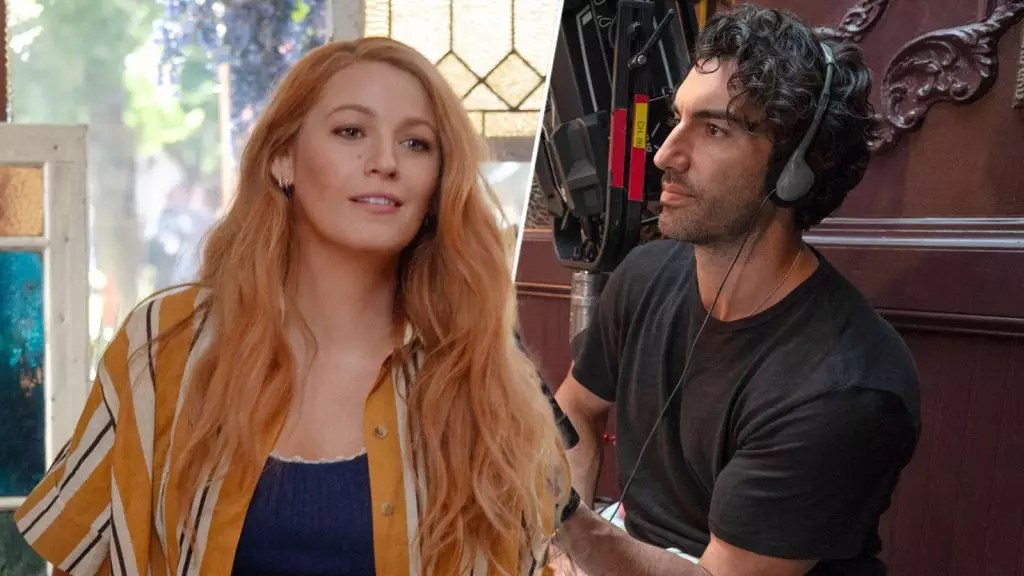The entertainment industry has a long history of allegations surrounding workplace misconduct, and the recent lawsuit filed by Blake Lively against her “It Ends With Us” co-star and director, Justin Baldoni, has amplified scrutiny around such issues. Lively claims she faced sexual harassment and a retaliatory smear campaign resulting from her attempts to address Baldoni’s inappropriate behavior on set. This legal claim not only highlights the personal toll such misconduct can have on an individual’s life but also emphasizes the broader implications for workplace culture in Hollywood.
One particularly noteworthy aspect of Lively’s lawsuit is the immediate impact it had on her professional commitments. According to the complaint submitted to the California Civil Rights Department, she annulled several public appearances, including a crucial hosting role for the Season 50 premiere of “Saturday Night Live”—a position that ultimately went to another actor, Jean Smart. The distress stemming from Baldoni’s alleged behaviors forced Lively to reconsider her professional engagements, as she reportedly felt unable to appear publicly without confronting the ongoing discussions about her experiences on set.
The lawsuit outlines how the toll was not limited to canceled appearances; Lively also had to back out of an essential corporate event for her haircare company, thwarting her professional trajectory at a critical juncture. The document claims that the negative discourse surrounding the on-set drama became a barrier that impeded Lively’s ability to engage successfully with her professional endeavors.
The lawsuit makes serious allegations against Baldoni and his production company, Wayfarer Studios, suggesting that they orchestrated a systematic plan to damage Lively’s reputation following her decision to formally express her concerns. This retaliation is described as a “sophisticated press and digital plan,” a term that invokes the chilling thought of targeted smear tactics meant to silence and intimidate dissenters in the industry. The complaint cites a troubling meeting that transpired just before the film’s release, where Lively, Baldoni, and other key figures gathered to discuss Baldoni’s purportedly inappropriate conduct. The allegations range from unsolicited physical interactions to inappropriate comments that left Lively feeling uncomfortable and objectified.
This coordinated approach raises pressing questions about the culture of accountability in Hollywood. Too often, powerful individuals and institutions utilize their influence to suppress voices that dare to challenge their behavior. By filing this lawsuit, Lively endeavors not only to assert her right to speak up against harassment but also to foster an environment where such actions are no longer tolerated.
Response and Ramifications in the Industry
In light of these allegations, Baldoni’s legal team quickly denounced Lively’s claims, characterizing them as “categorically false” and alleging that Lively was attempting to mitigate the fallout from her own actions during promotional efforts for the film. This pushback embodies the challenges faced by individuals who dare to speak out in a high-stakes environment like Hollywood, where media narratives can swiftly shift to favor the powerful.
Baldoni’s agency, WME, recently severed ties with him, reflecting the rapidly evolving dynamics of public perception in response to the lawsuit. Moreover, the support expressed by Colleen Hoover, the author of the source material for “It Ends With Us,” indicates growing solidarity within the industry concerning addressing and dismantling toxic behaviors.
This legal battle is not merely about the actions of one individual; it serves as a critical reflection on the broader societal structures within Hollywood. The claims underline the necessity of a cultural reset regarding how misconduct is addressed and how victims are treated following their disclosures. With growing public awareness and advocacy for victims’ rights, Lively’s lawsuit may pave the way for more individuals in the industry to assert their rights, thereby contributing to a foundational change in the entertainment landscape.
The ramifications of this situation extend beyond Lively and Baldoni, echoing through the halls of Hollywood and prompting discussions on workplace decency. It is a pivotal moment for an industry in need of reform, as it unveils both the fragility of reputation and the strength that can come from standing one’s ground against harassment and retaliation. The outcome of this case may set a precedent for how similar allegations are handled moving forward, steering the conversation toward a safer and more accountable professional environment.


Leave a Reply